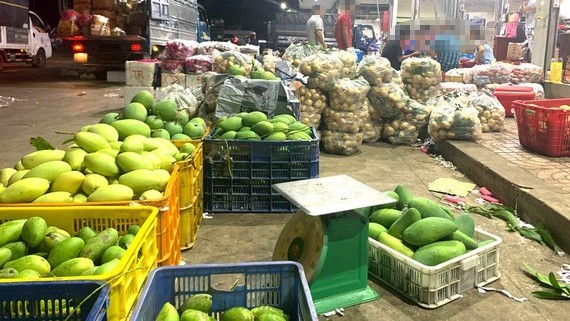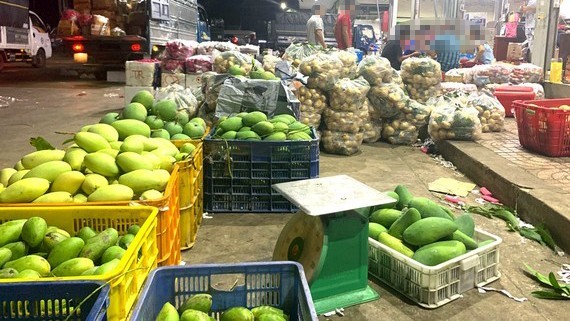

At the conference to summarize six years of establishment of the Ho Chi Minh City Food Safety Management Board, the board announced that nearly 50 percent of vegetables and fruits collected from wholesale markets had a lot of residues of pesticides; worse, many samples even exceeded the allowable limits, including banned chemicals.
Moreover, 42 percent of seafood samples were contaminated with cadmium exceeding the permitted level mostly in squid and octopus while 37 percent of farmed seafood samples had residues of antibiotics banned from using ciprofloxacin and 49 percent of samples had enrofloxacin antibiotics.
Immediately after receiving this information, the Agro-Forestry-Fisheries Quality Control Department under the Ministry of Agriculture and Rural Development issued an official request to the Food Safety Management Board of Ho Chi Minh City to recalculate the percentage of vegetable samples, fruits, and seafood to avoid a decline in exports.
For years, consumers and housewives have always been worried and skeptical about the safety of food sold in local markets, and stores that do not have a quality monitoring system. Many food poisoning cases still take place. Many restaurants, eateries, and food processing facilities are still unhygienic, and abuse additives, and chemicals whereas consumers have rights such as the right to safety, and the right to information.
The Food Safety Management Board of Ho Chi Minh City announced the quality of foodstuff to affirm its responsibility and performance assigned by the state to guard food quality. The Agro-Forestry-Fisheries Quality Control Department asked to recheck the information for ensuring the accuracy of the published data.
Information about food safety should be publicized to protect the health of consumers and catch responsible agencies for increased inspection of agricultural produce because Vietnam heavily relies on exports of vegetables and agricultural products. If the quality supervision is strictly implemented from the beginning, it will not be possible for our food, agricultural and aquatic products to be warned, recalled, or even returned by the importing country.
Lately, EU countries have issued warnings against Vietnam’s instant noodles, chili sauce, black pepper, cinnamon powder, grapefruit, rambutan, dragon fruit, wood ear, fragrant rice, and frozen frog legs.
Authorities also need to disclose information about businesses and specific products that are not safe. But it is also not possible to only focus on exports but to let loose domestic goods, disregarding the health of domestic consumers.
























